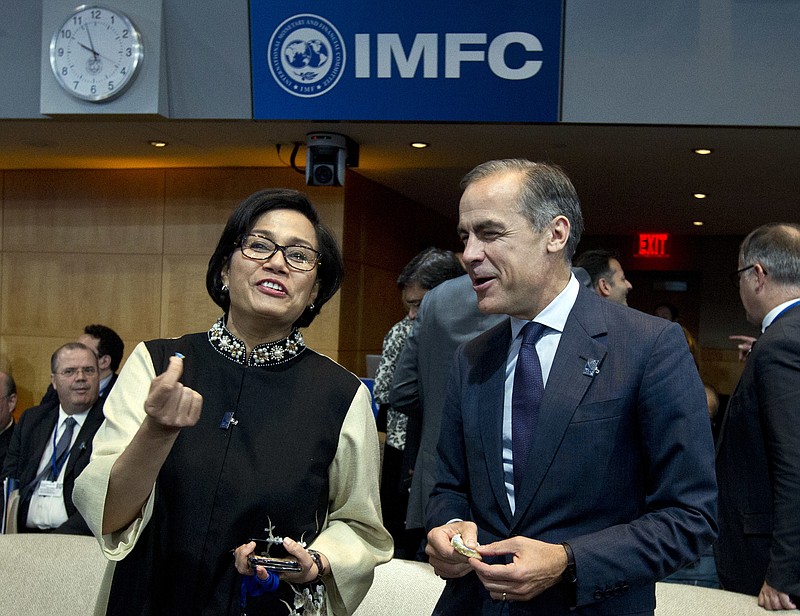LONDON (AP) - Inflation is set to rise above 3 percent in the next month or two, the Bank of England's governor warned Tuesday, a cautionary note that reinforces expectations interest rates will soon rise for the first time in a decade.
Mark Carney's comment came after official data showed consumer prices rose 3 percent in the year to September, up from the previous month's 2.9 percent rate. The increase, which took the rate to its highest since March 2012's 3.5 percent, was anticipated in financial markets and largely due to rising prices for food and transport.
If it had risen any further, Carney would have had to write to Treasury chief Philip Hammond explaining why inflation is more than a percentage point above the 2 percent target and what he and his colleagues at the central bank were going to do about it.
In testimony to lawmakers on Tuesday, Carney said he's "more likely than not" to have to write that letter in October or November.
It's because of this above-target inflation that Carney and others on the bank's rate-setting panel are expected to raise the benchmark rate by a quarter point from the record low of 0.25 percent at the next policy meeting on Nov. 2. After the last meeting, when seven of the nine panel members voted for unchanged rates, Carney put financial markets on notice that rates were likely to rise in the "coming months" largely because of the inflation spike. However, he has stressed that rate increases, when they come, will be modest and gradual, partly because of the uncertainty surrounding Brexit.
"Today's release has all but rubber-stamped a rate hike from the central bank at their next meeting," said David Cheetham, chief market analyst at online trading firm XTB.
The expected rate rise comes despite evidence that the British economy is faltering - it is growing slower than any other Group of Seven industrial economy this year - and that inflation is expected to ease back in coming months. The pound was little changed by the inflation numbers as most investors have already priced in a likely November rate hike. In late-morning trading, it was up 0.1 percent at $1.3268.
One of the main reasons why inflation has spiked over the past year is related to the pound's 15 percent or so drop fall since the country voted to leave the European Union in June 2016. That has ratcheted up the cost of imported goods like food and energy, trebling the inflation rate since September 2016.
However, the impact of the lower exchange rate on inflation is set to ease as the annual change of prices due to the pound's decline drops out of the comparison.
Though Silvana Tenreyro, one of the newest members on the Bank of England's rate-setting panel, told lawmakers Tuesday that the pressure from this depreciation will "start to wane in coming months," she conceded that she was "minded" to back higher rates "in coming months."
The central bank's upcoming economic projections, released on Nov. 2 alongside the rate decision, are set to show growth remaining weak and inflation edging lower. But many economists think the bank should raise interest rates to give itself room to cut in the future in the event of a recession or financial shock. Others think it could lose credibility if it again fails to deliver on a rate hike it had hinted about.
The dilemma facing the bank was evident in testimony given by Dave Ramsden, its new deputy governor for markets and banking. He said he was not part of the majority at the last meeting who thought interest rates should head higher soon, largely because there is little evidence that inflation was boosting wages. Figures due Wednesday are set to show that wage gains are lagging inflation by about a percentage point, meaning household incomes are falling, a trend that has the potential to depress economic activity.
Ramsden cautioned that leaving the EU is "a multi-dimensional process" and that the coming months are crucial ones for Brexit.
